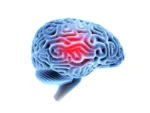
Adderall is a prescription medication commonly used to treat attention deficit hyperactivity disorder (ADHD). The drug has also gained popularity among individuals without ADHD because of its supposed cognitive enhancement effect. In this blog post, we’ll explore how Adderall affects the brain, its intended uses in adults and the potential side effects associated with its misuse.
How Does Adderall Affect the Brain in People With ADHD?
Adderall primarily affects neurotransmitters in the brain, specifically dopamine and norepinephrine. These neurotransmitters play key roles in regulating attention, focus and impulse control. By increasing the levels of dopamine and norepinephrine in the brain, Adderall can improve attention span, reduce impulsivity and enhance cognitive function in individuals with ADHD.
What Part of the Brain Does Adderall Affect?
The brain regions affected by Adderall include the prefrontal cortex and the limbic system. The prefrontal cortex is involved in executive functions (such as decision-making, planning, and impulse control), while the limbic system regulates emotions and motivation.
Adderall stimulates activity in these areas, improving cognitive function and helping individuals with ADHD better regulate their attention and behavior. However, misuse or abuse of Adderall can lead to disruptions in these brain regions, potentially causing adverse effects.
Uses for Adderall in Adults
In addition to treating ADHD, Adderall is sometimes prescribed off-label for other conditions in adults, including:
1. Narcolepsy: Adderall can help improve wakefulness and reduce excessive daytime sleepiness in individuals with narcolepsy, a sleep disorder characterized by sudden bouts of uncontrollable sleepiness.
2. Treatment-Resistant Depression: In some cases, Adderall may be prescribed as an adjunct treatment for depression, particularly when other medications have been ineffective. Its stimulant properties can help alleviate symptoms of fatigue and improve mood.
3. Cognitive Enhancement: While not approved for this purpose, some adults without ADHD may use Adderall as a cognitive enhancer to improve focus, concentration and productivity, particularly in academic or professional settings. However, there is no conclusive evidence that Adderall enhances cognitive function in individuals without ADHD.
Side Effects of Adderall
Despite its therapeutic benefits, Adderall can cause a range of side effects, especially when used improperly or without medical supervision. Common side effects of Adderall include:
1. Insomnia: Adderall’s stimulant effects can interfere with sleep, making it difficult to fall asleep or stay asleep.
2. Loss of Appetite: Adderall can suppress appetite, leading to weight loss or nutritional deficiencies if not properly managed.
3. Increased Heart Rate and Blood Pressure: Adderall can cause elevated heart rate and blood pressure, increasing the risk of cardiovascular complications, particularly in individuals with pre-existing heart conditions.
4. Anxiety and Irritability: Some individuals may experience heightened anxiety, nervousness, or irritability while taking Adderall, especially at higher doses.
5. Dependence and Withdrawal: Long-term use of Adderall can lead to physical and psychological dependence, with withdrawal symptoms such as fatigue, depression and cravings upon discontinuation.
Individuals who are prescribed Adderall must be monitored closely by a healthcare professional to minimize the risk of side effects and ensure the medication’s effectiveness.
The Dangers of Adderall Misuse
While Adderall can be a valuable tool for managing ADHD and other conditions when used as directed by a physician, misusing this drug poses significant risks. Whether for recreational purposes or as a study aid, misusing Adderall can lead to addiction, tolerance and serious health consequences.
In addition to jeopardizing one’s health and well-being, using Adderall without a prescription or medical supervision is against the law and can result in legal ramifications.
When used appropriately, Adderall is a powerful medication that can significantly improve the lives of individuals with ADHD and other conditions. By increasing dopamine and norepinephrine levels in the brain, Adderall enhances attention, focus and impulse control to help individuals better manage their symptoms.
However, there are potential risks associated with Adderall, including side effects and the potential for misuse and addiction. Education, awareness and responsible use are key to maximizing the benefits of Adderall while minimizing its risks, ensuring safe and effective treatment.
